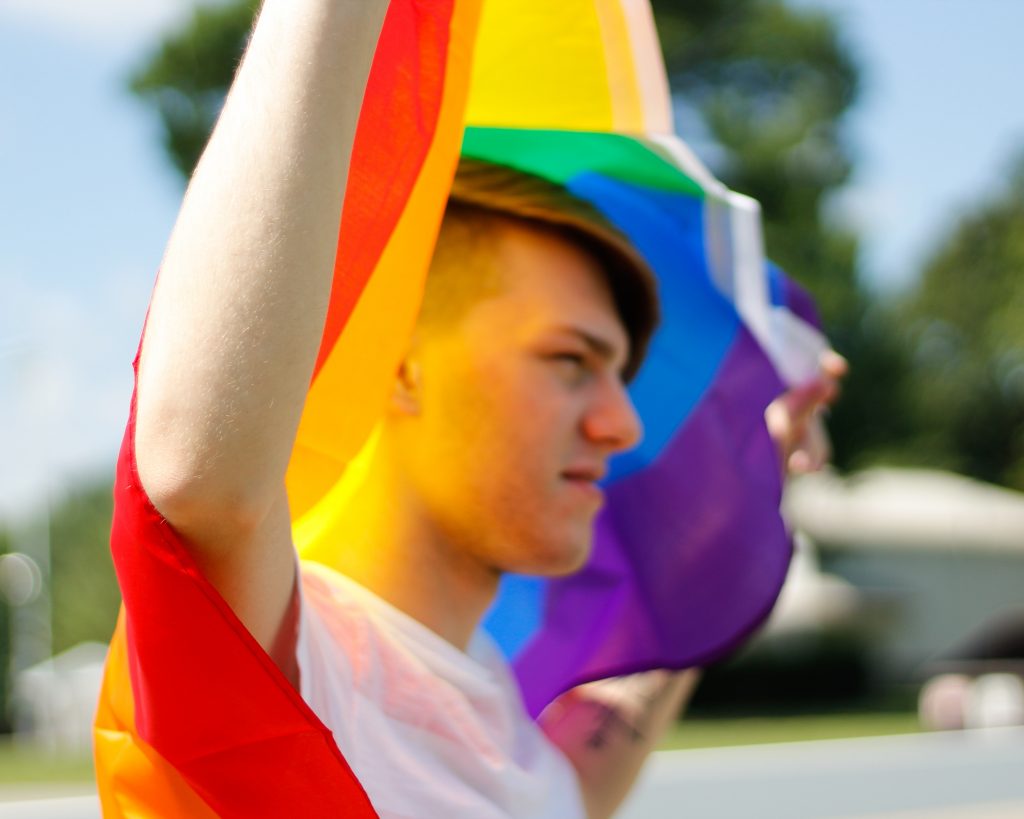Fighting discrimination against the LGBTQI+ community at the core of the European Union: The case of the “LGBTQI+ free zones” in Poland
10 February 2022 /
Caterina Mosca 5 min

The clash for LGBTQI rights in Poland
The beginning of this story dates of February 2019, when the mayor of Warsaw Rafał Trzaskowski (at the time affiliated to “Civic Platform”, a liberal center-right party) signed a declaration supporting LGBTQI rights, and expressed his intention to implement the World Health Organisation’s recommendation to integrate LGBTQI issues in Warsaw’s schools curricula. In response to this, a handful of Polish municipalities decided to declare themselves as “LGBT-free zones” in order to counteract what they deemed to be a spread of the “LGBT ideology” and to protect traditional Polish families and children. This was also a piece de resistance of the current ruling party in Poland, “Law and Justice” (PiS), whose benchmark statement affirms that “LGBT people do not actually exist, but LGBT is simply an ideology”. “The LGBT ideology is something entirely different from individual people, because there is a political movement behind it” declared Paweł Jabłoński, an undersecretary of State under the Polish Ministry of Foreign Affairs in an interview granted to PBS NewsHour.
Despite being presented as a motion promoted to safeguard traditional values, the establishment of “LGBT free zones” has been harshly criticized by Polish activists. “He is not thinking of us as human beings” –explains Bartosz Staszewski referring to Andrzej Duda, the actual president of Poland and representative of the PiS – “he thinks of us as political tools to reach his political goals”. In line with Staszewki’s affirmations, Poland finds itself as the most homophobic country in the EU according to the “Rainbow Map”, an annual report related to the status of LGBTI equality laws and policies drafted by the NGO ILGA-Europe.
The EU’s counteract to the discriminatory policies
With actually more than 90 municipalities –approximately one third of the Polish territory– adopting motions against the “LGBTQI ideology”, reactions at different levels all over the European Union were triggered. Many European towns decided to break their twinning agreements with Polish municipalities that declared themselves as “LGBT-free zones”, since they saw this as a move against the safeguarding of sexual minorities.
Counteractions were provoked also among the EU institutions: in December 2019, the European Parliament voted to condemn the “LGBT-free zones”, considering them an attack to the LGBTQI community in Poland. The European Commission pushed as well the Polish municipalities to put an end to this policy. “LGBT-free zones are humanity free zones. And they have no place in our Union” remarked the President of the European Commission Ursula von der Leyen in her 2020 State of the Union Speech.
The Polish stepback
Due to the Polish lack of collaboration after the European Commission’s demand to carry out a detailed analysis of the compatibility of the resolutions with EU law, in July 2021 the institution launched legal action against Poland for violations of fundamental rights of LGBTIQ people.
At the beginning of September 2021, the Commission warned five Polish municipalities adopting the “LGBT-free zone” policy that if the motion was not withdrawn, part of the Covid-19 European recovery fund would be cut. The fund is part of REACT-EU, a program destined to help European Member States recover from the disastrous effects of the pandemic on their economies, with a total allocation of EUR 50.6 billion (under which 1.5 billion would correspond to the Polish state). By the end of the month, threatened by the prospect of additional sanctions, three Polish regional Councils eventually repealed motions declaring their provinces as “LGBT-free zones”.
Safeguarding a core principle of the European Union
The peculiarity of the European Union is that of not being a mere political and economic Union: in fact, one of its cornerstones concerns a set of core values which the European institutions and the Member States are compelled to respect and enforce all over the EU territory. Among them, the principle of non-discrimination, which summarizes the basic rights enjoyed by all EU citizens and is enshrined in the European Charter of Fundamental Rights, finds itself as central. Despite that, the safeguarding of individuals belonging to the LGBTQI+ community and their rights is still marginal if not obstructed by some Member States, like in the case of the aforementioned Poland, but also in countries like Hungary and Latvia.
In order to improve the overall situation of the LGBTQI community within the EU, in November 2020 the European Commission presented the LGBTQI Strategy 2020-2025, as it was previously announced by Ursula von der Leyen in the State of the Union Address. It revolves around four main pillars which provide the guidelines for targeted actions, namely tackling discrimination, ensuring safety, building inclusive societies and leading the call for LGBTIQ equality around the world.
According to the LGBTQI Strategy’s fact sheet, despite an increasing belief among EU citizens that individuals belonging to the LGBTQI community should have the same rights as heterosexuals, a growing segment of LGBTQI people affirms having felt discriminated against. In response to this, the European Commission opted for integrating the fight of discrimination against LGBTIQ people in all EU policies as part of the Strategy.
What is next?
The repealing by some Polish municipalities of the motions regarding the creation of “LGBT-free zones” due to the pressures imposed by the European institutions has shown that, with the proper means, the EU can enforce the respect of its core values, in this case the principle of non-discrimination on the basis of sexual orientation. In spite of this, tendencies towards the adoption of homophobic policies and the lack of safeguarding of LGBTIQ+ rights by national governments keep being a relevant problem that needs to be promptly and firmly addressed. It remains to be seen if the strategies put in place by the Commission under Ursula von der Leyen’s mandate prove to be effective in addressing these issues.
[This article was first published in the issue 35 of the magazine]
